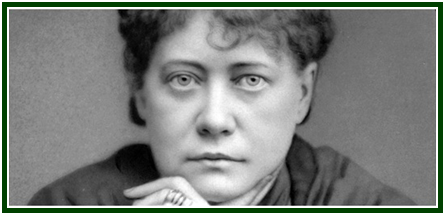There Is No Reason to
Complicate Facts Too Much
Complicate Facts Too Much
O. S. Marden
 Fleet Street, in
London, in the year of 1890
Fleet Street, in
London, in the year of 1890

A 2021 Editorial
Note
With regard to the
presence of universal and planetary consciousness in simple physical objects
and aspects of nature, a master of the Wisdom wrote:
“ ‘As below so above’ - that is the universal system
of correspondences - try to understand by analogy. Thus will you see that in
this day on this present earth in every mineral, etc., there is such a
[universal planetary] spirit. I will say more. Every grain of sand, every
boulder or crag of granite, is that
spirit crystallized or petrified.” (“The Mahatma Letters”, Letter
15, answer to question number one.)
(CCA)
000
Simplicity Shows You the Truth
O. S. Marden
Ruskin was one day
walking through some of the narrow streets of London with a friend who
complained constantly of the soot and mud.
“But as a matter of fact”, said the glorifier of the
commonplace with a smile, “we are walking through diamonds and sapphires and
opals.”
His friend looked astonished and Ruskin continued,
“This soot, you know, is a distant cousin to diamonds; and this clay, this
sand, to those finished products we call jewels. There really is nothing common
or unclean in this world of ours, my young friend, and it is what we call
‘commonest’ that we often find most worthwhile, if only we have the patience or
will to take the pains to develop it.”
If we could only see the relation of the common things
of life, the so-called commonplace traits of character, to the ideal of the
Divine Mind that planned the whole, even as Ruskin saw the kinship of the soot
to the diamond, how it would transform and glorify our lives! It would
stimulate the most sluggish; would put new heart into the most discouraged;
would unfold such a vista of possibilities to the humblest worker in the army
of humanity, that each would be irresistibly urged onward to the achievement of
the greatest thing possible to him.
Scientists tell us that the reason why the secrets of
Nature have been hidden from the world so long is because we are not simple
enough in our methods of reasoning; that investigators are looking for unusual phenomena,
for something complicated; that the principles of Nature’s secrets are so
extremely simple that men overlook them.
The happiness and success that life holds for every
normal being are never found by multitudes of men and women because they think
that the methods by which they are attained are very difficult and intricate.
They believe that they are only for those who have been born in the ranks of
the fortunate, the well-to-do, or who have been especially gifted by Nature
with genius or commanding ability or talents of some sort.
How few of us realize that true success, which is open
to all, is not measured by the accomplishment of some great thing; that it does
not consist in being wealthy, famous or powerful; but that it is the crown of
all who honestly, earnestly do their best and live the everyday simple life,
with all that it involves in the practice of the commonplace duties of every
day. It is by the exercise of the common, homely virtues; it is by trying to do
everything one attempts to a complete finish; by trying to be scrupulously
honest in every transaction; by always ringing true in our friendships, even by
holding a helpful, accommodating attitude toward those about us; by trying to
fulfill to the best of our ability the obligation to be noble, to be loyal to
our highest ideals, it is by such things as these that we make successful
lives.
If every man could once get a good view of himself, could
see clearly his latent possibilities, and should then apply himself to their
cultivation, civilization would push toward the millennium [1] with giant strides.
NOTE:
[1] Millennium: a period of great happiness. (CCA)
000
English writer John Ruskin was born on 8 February 1819
and lived up to 1900.
The article “Simplicity Shows You the Truth”, by O. S.
Marden (1848-1924), was published in the associated websites on 13 December 2021.
The first paragraphs of the text are also part of the May 2020 edition of “The Aquarian Theosophist”, pp. 12-13. All
of them are reproduced from the book “Making Life a Masterpiece”, by Orison
Swett Marden, Thomas Y. Crowell Company, New York, 1916, see pp. 55-57.
000
Read more:
000

Helena Blavatsky
(photo) wrote these words: “Deserve,
then desire”.
000
